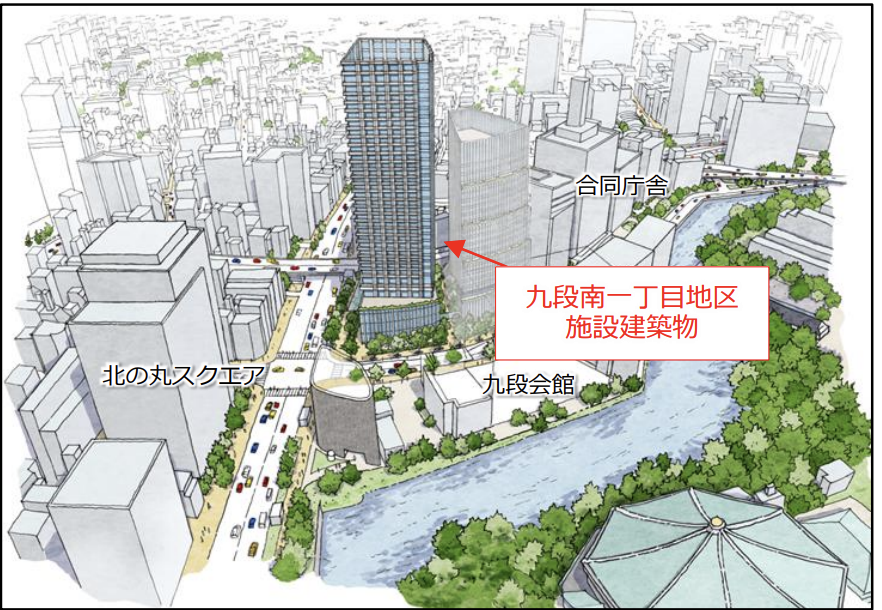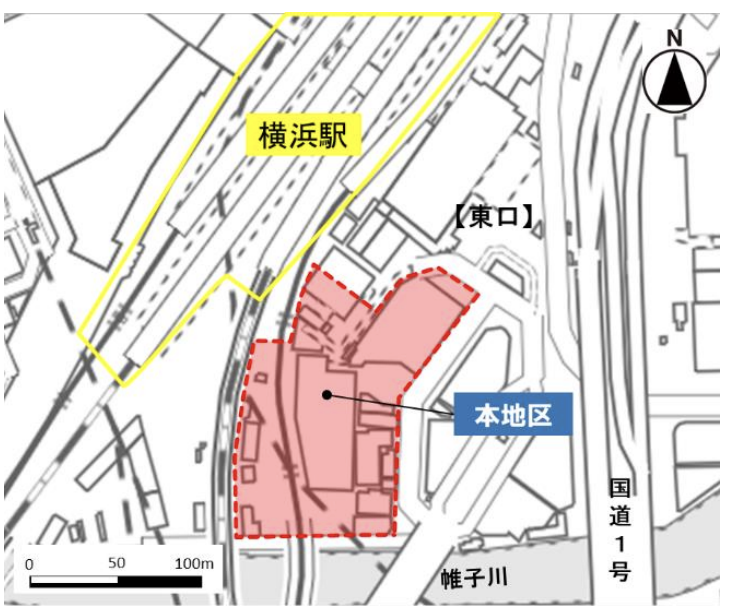Selling a condominium is one of life's biggest decisions. For many people, a condominium is their most expensive asset, and its sale requires careful preparation and proper knowledge.
In this article, INA & Associates, Inc. will explain the process of selling a condominium, from the flow of selling a condominium to the precautions that need to be taken, in an easy-to-understand manner for the average consumer. In order to successfully sell a condominium, it is important to take the proper steps and understand the precautions to be taken at each stage.
The condominium sale process generally takes four to six months. In order to make the most of this period and realize the sale of the condominium under optimal conditions, please refer to the information provided in this article.
Basic Flow of Selling a Condominium
Overview from preparation to delivery of the sale
The sale of a condominium progresses in the following seven steps. Understanding each step and proceeding systematically will ensure a smooth sale.
| Steps | Contents | Estimated time frame | Main points |
|---|---|---|---|
| 1 | Preparation for sale and information gathering | 1 to 2 weeks | Preparation of necessary documents, market research |
| 2 | Request for appraisal | 1~2 weeks | Assessment request to multiple companies |
| 3 | Mediation contract conclusion | 1 week | Selection of contract form |
| 4 | Sale activity | 2 to 4 months | Handling viewings, price adjustment |
| 5 | Conclusion of sales contract | 1 day | Confirmation of contract terms |
| 6 | Settlement and delivery | 1 to 2 months later | Settlement of remaining balance and handover of keys |
| 7 | Finalization | February to March of the following year | Declaration of transfer income |
Step 1: Selling Preparation and Information Gathering
The first step in selling a condominium is to fully prepare and gather information. First, clarify your reason for selling and your goals. The best strategy depends on the reason for sale, such as relocation, financing, or inheritance.
Preparation of necessary documents is essential for a smooth sale. Prepare the following documents in advance.
- Certificate of registered rights (information for registration identification)
- Property tax notice
- Receipt of management fee and reserve fund for repairs
- Management rules and bylaws of the condominium
- Investigation report on important matters
- Mortgage balance certificate (if there is a loan)
- Identification card and certificate of seal impression
Confirmation of the remaining mortgage balance is also important. An "overdrawn" condition, where the sale price is less than the outstanding loan balance, may make a normal sale difficult. Check with your financial institution in advance to ascertain the exact amount of the remaining loan balance.
Step 2: Request a condominium appraisal
The condominium appraisal is an important process to determine the sale price. There are two types of assessments: "desk-based assessment" and "on-site assessment.
A desk-based assessment is a simple assessment calculated based on basic information about the property and examples of transactions in the surrounding area. While the result is obtained in a short time, the actual housing situation is not reflected.
In an onsite appraisal, the person in charge of the real estate company actually visits the housing and comprehensively evaluates the interior conditions, the state of the facilities, the view, and the sunlight. An onsite appraisal is necessary to obtain a more accurate assessed value.
Requests for assessments to multiple companies are important in order to grasp a proper sale price. Since a difference occurs in an assessed value price depending on a real estate company, it is recommended that an appraisal be requested to three or more companies at least.
Step 3: Conclusion of mediation contract
If an assessed value result is compared and examined, and a reliable real estate company is selected, a mediation contract is concluded. There are the following three types of mediation contracts.
| Type of contract | A contract with two or more companies | Self-discovery dealings | Reporting duty | Contract term |
|---|---|---|---|---|
| General mediation contract | Possible | Possible | None | No limitation |
| Full-time mediation contract | Not possible | Possible | More than once every two weeks | Within 3 months |
| Under-exclusive-contract exclusive duty mediation contract | Not possible | Not possible | More than once a week | Within 3 months |
When a full-time mediation contract or under-exclusive-contract exclusive duty mediation contract is selected, a real estate company is obligated to perform active sales activities. On the other hand, although there is an advantage in a general mediation contract that can request more than one company, each company's willingness to sell may decrease.
Step 4: Sale activity
After a mediation contract is concluded, a full-scale sales activity is started. A real estate company performs the following activities.
- Property publication on a real estate portal site
- Newspaper insert flier and posting
- Introduction on its own homepage
- Provision of housing information to other real estate companies
- Corresponding to previews of prospective purchasers
The viewing response is an important element of a successful sale. In order to make a good impression on prospective buyers, pay attention to the following points.
- Keep the rooms clean and tidy
- Ensure bright lighting and open the curtains to allow for lighting
- Reduce the sense of living and make the room look like a model room
- Repair any equipment defects in advance
During the sale process, price adjustment may be considered based on the market reaction. We will analyze the number of viewers and inquiries, and revise the selling price if necessary.
Step 5: Conclusion of sales contract
Once a prospective buyer appears and an agreement is reached on price and terms, a purchase agreement is concluded. The following items are confirmed at the time of contract.
- Purchase price and payment terms
- Time of delivery
- Handling of incidental facilities
- Scope and period of liability for non-conformity with the contract
- Amount of deposit and time of payment
A deposit is received at the time the contract is concluded. The market rate for a deposit is approximately 5-10% of the sales price. In addition, the seller is obligated to prepare a list of incidental facilities and aproperty condition report to accurately inform the buyer of the condition of the property.
Step 6: Settlement and delivery
Settlement and delivery of the property will take place approximately one to two months after the conclusion of the sales contract. The process on the day of settlement is as follows
- Identification and document verification by a judicial scrivener
- Execution of mortgage loan (buyer)
- Payment of the remaining balance
- Payment of brokerage fees, etc.
- Cancellation of mortgage (if the seller has a loan)
- Registration of transfer of ownership
- Delivery of keys and related documents
Settlement is usually held at the financial institution where the buyer's mortgage loan is held. The seller must complete the move and empty the property by the day of the event.
Step 7: Final tax return
If the sale of the condominium results in transfer income, a tax return must be filed between February 16 and March 15 of the following year.
Transfer income is calculated by the following formula.
Transfer income = sales price - acquisition costs - transfer expenses
Acquisition cost includes the purchase price of the condominium and other expenses at the time of purchase, and transfer cost includes brokerage fees and stamp tax. Since there are special provisions for the sale of residential property, such as a special deduction of ¥30 million, it is recommended that you consult a tax accountant.
Important points to note when selling a condominium
Determining the timing of the sale
The timing of the sale of a condominium can greatly affect the sale price. Since the real estate market fluctuates with the seasons and economic conditions, it is important to determine the appropriate timing.
Generally, January through March and September through November are the best times to sell, when demand for relocation due to transfers or schooling increases. During these periods, there are many prospective buyers, and a relatively high sale price can be expected.
The age of the condominium also affects the sale price. Since price declines become more pronounced after 10 years of construction, early action is effective if you are considering selling.
Setting an Appropriate Selling Price
Setting the selling price is the key to a successful sale. Setting too high a price will not attract prospective buyers and will prolong the sale period. On the other hand, setting too low a price can lead to financial losses.
In order to set an appropriate offer price, the following factors must be comprehensively considered
- Closing sales of similar properties in the neighborhood
- Current market trends
- Individual factors of the property (number of floors, direction, condition of facilities, etc.)
- Desired time of sale
- Number of competing properties on the market
In order to accurately grasp the market price, utilize market research on a real estate portal site or an appraisal from multiple real estate companies.
Importance of real estate company selection
The selection of a real estate company is an important decision directly related to successful sale. Instead of simply selecting a company with a high assessed value price, it is important to make a comprehensive judgment from the following perspectives.
| Evaluation item | Points to check |
|---|---|
| Track record/experience | Track record of sales in the same area and the same type of property |
| Sales ability | Advertising strategy and network |
| Responsiveness | Knowledge of the person in charge, speed of response |
| Reliability | License number, membership in industry associations |
| Commissions | Clarity of brokerage fees |
Attention should also be paid to inappropriate sales practices known as "enclosure. This is an act in which a real estate company intentionally excludes purchase offers from other companies in order to obtain brokerage commissions from both the seller and the buyer. This may lead to a prolonged period of sale and a decrease in the sale price.
Measures against Liability for Non-Conformance with Contract
With the revision of the Civil Code in April 2020, the traditional "liability for defects" was changed to "liability for nonconformity to contract. The seller is liable to the buyer if the property is delivered differently from what was described in the contract.
To avoid problems with contractual nonconformity liability, take the following measures
- Accurate description of the condition of facilities in the Schedule of Ancillary Facilities
- Report defects in detail in the property condition report
- Conduct a building condition survey (inspection) by a professional contractor.
- Consider purchasing an existing home sales defect insurance policy.
It is especially important to accurately grasp the operational status of equipment such as water heaters, air conditioners, and intercom systems, and to explain any defects to the buyer in advance.
Dealing with remaining mortgage debt
Special attention should be paid to the sale of a property with a mortgage balance. In an "overdrawn" situation, where the sale price is less than the outstanding loan balance, the following actions may be taken
- Voluntary sale: Sold at market price with the consent of the financial institution
- Replacement loan: Incorporate the remaining loan balance when purchasing the new house
- Compensate with personal funds: Pay the deficiency in cash
In the case of an overdrawn loan, consult with your financial institution or real estate company as soon as possible to determine the best solution.
Tax Considerations
Various taxes are imposed on the sale of condominiums. The main taxes and reductions are listed below.
| Type of tax | Taxable | Reduction measures |
|---|---|---|
| Transfer income tax | Gain on sale | 30 million yen special deduction for residential property |
| Residential tax | Gain on sale | Same as above |
| Stamp duty | Sales contract | Reduced tax rate |
| Registration tax | Cancellation of mortgage | None |
The ¥30 million special exemption for residential property allows a maximum deduction of ¥30 million from transfer income when selling one's own home. In order to apply for this special exception, the following requirements must be met.
- Sell the house in which you live.
- Sell the house by December 31 of the year in which three years have passed since you stopped living in it.
- The seller is not a spouse or immediate family member.
- The same exemption has not been applied in the past two years
Management of the sale schedule
Establishing a schedule with adequate time is an important factor in the successful sale of a condominium. Rushing the sale can lead to the following problems
- Selling at a price below market value
- Mistakes in judgment due to lack of sufficient time for consideration
- Lack of time to move or find a new residence
- Insufficient preparation for tax procedures
The ideal sale schedule is as follows
| Time | Activities | Notes |
|---|---|---|
| 6 months prior | Information gathering, appraisal request | Consultation with multiple companies |
| Four months ago | Mediation contract, sale activity start | Sale at a proper price |
| Two months before | Sales contract conclusion | Sufficient examination of conditions |
| Delivery date | Settlement and delivery | Preparation of necessary documents |
| Next year | Finalization of tax return | Consultation with a tax accountant |
Points to consider when handling previews
The viewing process is an important factor that directly affects the willingness of prospective buyers to purchase a property. The following are the key points for an effective viewing response.
Cleanliness and tidiness are the most basic of basics. In particular, the kitchen, bathrooms, and toilets should be carefully cleaned to create a sense of cleanliness. It is important to dispose of unneeded items in advance to minimize the sense of living in the room.
Pay attention to lighting and lighting. Turn on all lights and open curtains and blinds to let in natural light. A bright space feels spacious and gives a good impression to potential buyers.
Don't forget about odor control. Pet and household odors can be off-putting to potential buyers. Before viewing, be sure to provide adequate ventilation and use deodorant if necessary.
Check the operation of equipment in advance and honestly explain any defects to build a relationship of trust. Avoid concealment, as it can cause problems later.
Details of expenses for the sale of condominiums
How to calculate a mediating fee
A mediating fee is the largest expense item in the sale of a condominium. The upper limit is set by the Building Lots and Buildings Transaction Business Law, and it is calculated as follows according to the sales price.
| Sales price | Upper limit of a mediating fee |
|---|---|
| Less than 2 million yen | Sales price × 5% + consumption tax |
| Over 2 million yen and under 4 million yen | Sales price x 4% + 20,000 yen + consumption tax |
| Over 4 million yen | Sales price x 3% + 60,000 yen + consumption tax |
For example, if a condominium is sold for 30 million yen, the brokerage fee is as follows
30,000,000 yen × 3% + 60,000 yen + consumption tax = 1,056,000 yen
A mediating fee is obligated to be paid when a sales contract is concluded, and usually half is paid at the time of contract and at the time of settlement.
Other various expenses
Various expenses occur in addition to a mediating fee in the sale of a condominium. The main expense items and a market price are as follows.
| Expense item | Approximate amount | Remarks |
|---|---|---|
| Stamp duty | 10,000-30,000 yen | to be affixed to the sales contract |
| Registration tax | 1,000 yen x number of cases | Registration of mortgage cancellation |
| Judicial scrivener's fee | 10,000-30,000 yen | Agency for registration procedures |
| Mortgage prepayment fee | 10,000-30,000 yen | Varies depending on the financial institution |
| Moving expenses | 100,000-300,000 yen | Varies depending on distance and amount of luggage |
| House cleaning | 50,000 - 150,000 yen | Varies depending on the area of the apartment |
| Repair cost | 0 yen to 500,000 yen | Varies depending on property conditions |
Stamp tax is the cost of stamps to be affixed to the sales contract, and the tax amount is determined according to the contract amount. a reduced tax rate is applied until March 31, 2024; for example, a contract for 30 million yen is 10,000 yen instead of 30,000 yen.
Registration and license tax andjudicial scrivener's fee are required for the registration of mortgage extinguishment when there is a mortgage. The registration and license tax is 1,000 yen per property, and the judicial scrivener's fee is approximately 10,000 to 30,000 yen.
Calculation of transfer income tax
Transfer income tax is imposed when a profit is generated from the sale of a condominium. The formula for transfer income is as follows
Transfer income = sales price - acquisition costs - transfer costs
Acquisition cost includes the following items.
- Purchase price of the condominium
- Brokerage fee at the time of purchase
- Registration and license tax and real estate acquisition tax
- Judicial scrivener's fee
- Remodeling and repair expenses
Transfer costs include the following items
- Brokerage fee at the time of sale
- Stamp duty
- Vacation fee (if the property is leased)
- Building demolition costs
The tax rate on transfer income is classified according to the period of ownership as follows
| Period of ownership | Income tax rate | Residential tax rate | Total tax rate |
|---|---|---|---|
| Less than 5 years (short-term) | 30% (short term) | 9% (short term) | 39% (short-term) |
| Over 5 years (long-term) | 15% 5% 5% (long-term) | 5% (long-term) | 20% (long-term) |
However, a special deduction of ¥30 million is applicable to the sale of residential property, which reduces the tax burden in many cases.
Methods to Reduce Expenses
The following methods are effective for reducing the cost of selling condominiums.
By requesting assessments from multiple companies, you can explore the room for negotiation of the brokerage fee. However, it is important to make a comprehensive judgment not only on the low commission but also on the content of the service.
You can reduce costs by proactively making preparations that you can do yourself. For example, you can save money by doing minor repairs and cleaning yourself instead of hiring a professional contractor.
You can reduce your tax burden by taking advantage of tax incentives. Make appropriate use of systems such as the 30 million yen special deduction for residential property and the special exception for replacement of property.
Conclusion
Selling a condominium is a complicated process, but with proper preparation and the right knowledge, you can make it a success. Please refer to the information presented in this article and keep the following important points in mind as you proceed with the sale.
Understanding and planning the sale process is the first step to success. Since it takes about 4 to 6 months from preparation for sale to delivery, set a schedule with plenty of time to spare.
It is important to request an appraisal from multiple real estate companies and to understand the appropriate sale price. Make a comprehensive judgment and select not only the assessed value but also the track record and responsiveness of the real estate company.
You can prevent trouble by not neglecting measures against contractual non-conformity liability and accurately informing the buyer of the condition of the property. Pay close attention to the preparation of the Schedule of Ancillary Facilities and the Property Condition Report.
By properly utilizing special tax measures, you may be able to significantly reduce your tax burden. In particular, the 30 million yen special deduction for residential property is a system that many people can take advantage of.
If you are having trouble selling your condominium, please consult with an experienced real estate agent, and INA & Associates, Inc. will propose the best sale strategy for each individual client's situation.
Frequently asked questions
Q1. How long does it take to sell a condominium?
A1. Generally, it takes about 4 to 6 months to sell a condominium. You should expect 1-2 months from preparation for the sale to the request for appraisal, 2-4 months for sales activities, and 1-2 months from contract to delivery. However, the period may vary depending on the condition of the property and market conditions. If you want to sell quickly, there is also the option of purchasing the property.
Q2: Can I sell my condominium even if I still have a mortgage?
A2. It is possible to sell a condominium even if there is a mortgage remaining. If the loan can be paid off with the sale price, the normal sale procedure will be used. In the case of an "overdraft" where the sale price is less than the remaining loan balance, there are methods such as voluntary sales and replacement loans. First, consult with a financial institution and consider the best solution.
Q3. How much is the brokerage fee when selling a condominium?
A3. The maximum brokerage fee is set by the Building Lots and Buildings Transaction Business Law, and is calculated as "sales price x 3% + 60,000 yen + consumption tax" if the sales price exceeds 4 million yen. For example, if the property is sold for 30 million yen, the maximum mediating fee is 1,056,000 yen. However, this is the maximum amount, and some real estate companies may offer a discount.
Q4. If a profit is made on the sale of a condominium, is there any tax?
A4: When transfer income (profit) is generated from the sale of a condominium, transfer income tax is imposed. However, since a special deduction of 30 million yen is available for the sale of residential property, the tax burden can be reduced or eliminated in many cases. If the period of ownership exceeds five years, the tax rate is reduced as long-term transfer income. Please consult your tax advisor for details.
Q5. Are there any points to be careful about during previews?
A5. First impressions are important during previews. Make sure the rooms are clean and tidy, and all the lights are turned on to create a bright impression. Clean the water areas especially carefully and pay attention to odors. If there are any problems with the facilities, do not hide them but explain them honestly to build a relationship of trust. If possible, try to create a model room-like presentation.

Daisuke Inazawa
Representative Director of INA&Associates Inc. Based in Osaka, Tokyo, and Kanagawa, he is engaged in real estate sales, leasing, and management. He provides services based on his extensive experience in the real estate industry. Based on the philosophy that “human resources are a company's most important asset,” he places great importance on human resource development. He continues to take on the challenge of creating sustainable corporate value.

.png)













